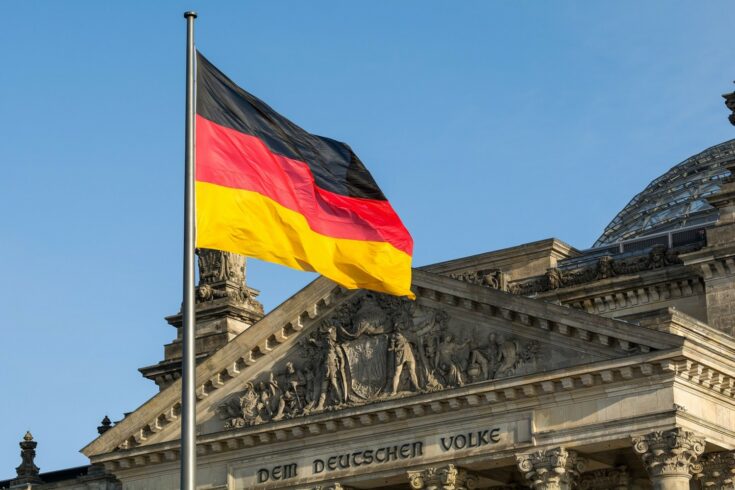The arts and humanities research projects funded show the importance of transnational collaboration.
Nineteen collaborative research projects have been awarded in the third round of funding delivered by the Arts and Humanities Research Council (AHRC) and the German Research Foundation (Deutsche Forschungsgemeinschaft DFG) partnership.
The awards bring together arts and humanities researchers in the UK and Germany to conduct outstanding projects spanning a wide range of academic disciplines.
From vaccine hesitancy to the internet of things
The projects explore topics including:
- ethical questions relating to vaccine hesitancy
- the human role in the devastation of landscapes
- the maritime cultural landscape in Scandinavian Scotland
- regulatory issues related to the Internet of Things.
After receiving high-quality proposals, both funders agreed to support 19 projects. This means an increase in budget, totalling over £5.2 million in the UK, matched by over €5.2 million for research teams in Germany. The projects will start in 2022 and are expected to run for three years until 2025.
Importance of transnational collaboration
The projects show the importance of transnational collaboration in supporting world-leading research.
This is part of a long-standing collaboration between the two funders, which was renewed earlier this year. The bilateral funding agreement has been extended for five years and will facilitate a total of eight funding opportunities. The fourth call is now open for applications.
Unleashing new ways of thinking
Professor Christopher Smith, Executive Chair of the Arts and Humanities Research Council and UKRI’s International Champion said:
The projects funded by this partnership demonstrate the importance of breaking down international barriers to unleash new ways of thinking.
Working with the DfG has enabled us to champion the transnational potential of the arts and humanities, which help us to better understand ourselves and the world we live in.
I am looking forward to seeing the impact of these projects and continuing to build on this successful collaboration with our German partners.
Further information
Full list of successful funded projects
Devastation, dislocation and (re-)settlement. Breaking/replacing the people-place connection in landscape
Professor Sam Turner (University of Newcastle)
Professor Dr Thomas Meier (Ruprecht-Karls-Universität Heidelberg)
Discipline: World Geography
FAIR Epigraphy
Professor Jonathan Prag (University of Oxford)
Univ.-Professor Dr Marietta Horster (Johannes Gutenberg-Universität Mainz)
Discipline: Ancient History
From Smart Technologies to Smart Consumer Laws: Comparative Perspectives from Germany and the United Kingdom
Dr Guido Noto La Diega (The University of Stirling)
Professor Dr Christoph Busch (Universität Osnabrück)
Professor Dr Louisa Specht-Riemenschneider (Rheinische Friedrich Wilhelms-Universität Bonn)
Discipline: Private law
GALaCSy: The Earliest Translations of the Pauline Epistles
Professor Hugh Houghton (University of Birmingham)
Dr Frank Feder (Akademie der Wissenschaften zu Göttingen)
Professor Dr Holger Strutwolf (Westfälische Wilhelms-Universität Münster)
Discipline: Theology
Images and Imagination of Impairment and Disability in the “Hans-Würtz-Collection”
Professor Simon McKeown (University of Teesside)
Professor Dr Oliver Musenberg (Humboldt-Universität zu Berlin)
Discipline: Social and Cultural Anthropology and Ethnology
Interreligious Communication in and between the Latin-Christian and the Arabic-Islamic Sphere: Macro-theories and Micro-settings
Dr Theresa Jäckh (University of Durham)
Professor Dr Daniel König (Universität Konstanz)
Discipline: Medieval History
Microvariation and youth language practices in Africa
Dr Hannah Gibson (University of Essex)
Jun.-Professor Dr Nico Nassenstein (Johannes Gutenberg-Universität Mainz)
Discipline: General and Comparative Linguistics, Typology, Non-European Languages
Moral Obligation, Epistemology and Public Health: The Case of Vaccine Hesitancy
Professor Tom Sorell (The University of Warwick)
Professor Dr Sven Bernecker (Universität zu Köln)
Discipline: Theoretical Philosophy
Prosodic structure at the interface between language and speech
Professor Alice Turk (The University of Edinburgh)
Dr Tina Bögel (Universität Konstanz)
Discipline: Applied Linguistics, Experimental Linguistics, Computational Linguistics
Rethinking Enlightenment: The reception of John Locke in Germany
Professor Thomas Ahnert (The University of Edinburgh)
PD Dr Lore Knapp (Universität Bielefeld)
Professor Dr Konstantin Pollok (Johannes Gutenberg-Universität Mainz)
Discipline: History of Philosophy
Roman melting pots: Tracing food residues and cultural diversity in a frontier zone
Professor Martin Pitts (University of Exeter)
Professor Dr Simon Hammann (Friedrich-Alexander-Universität Erlangen-Nürnberg)
Discipline: Classical archaeology
Romani Migration between Germany and Britain (1880s-1914): Spaces of Informal
Business, Media Spectacle, and Racial Policing
Professor Eve Rosenhaft (University of Liverpool)
Dr Felix Brahm (Universität Bielefeld)
Discipline: Modern History
The Norse and the Sea: The Maritime Cultural Landscape of Scandinavian Scotland
Professor Alexandra Sanmark (University of Highlands and Islands)
Docent Dr Sven Kalmring (Stiftung Schleswig-Holsteinische Landesmuseen Schloss Gottorf)
Discipline: World Archaeology
The Sound of Nature: Soundscapes and Environmental Awareness, 1750-1950
Professor Martin Willis (Cardiff University)
Dr Wilko Graf von Hardenberg (Humboldt-Universität zu Berlin)
Discipline: Modern History
The Universe as an Open System
Dr Karim Thebault (University of Bristol)
Professor Dr Stephan Hartmann (Ludwig-Maximilians-Universität München)
Discipline: Theoretical Philosophy
Weather Reports – Wind as Model, Media, and Experience
Professor Ryan Bishop (University of Southampton)
Professor Dr Birgit Schneider (Universität Potsdam)
Discipline: Theatre and Media Studies
´Werck der bücher’: Transitions, experimentation, and collaboration in reprographic technologies, 1440–1470
Dr Stephen Charles Mossman (The University of Manchester)
Dr Ing Vincent Christlein (Friedrich-Alexander-Universität Erlangen-Nürnberg)
Dr Nikolaus Weichselbaumer (Johannes Gutenberg-Universität Mainz)
Discipline: Medieval German Literature
Where have all the Workers Gone? Labour and Work in Ghana, 1951-2010
Professor Gareth Austin (University of Cambridge)
Professor Dr Phil Andreas Eckert (Humboldt-Universität zu Berlin)
Discipline: Modern and Current History
World Futures: Multimodal Viewpoint Construction by Russian International Media
Dr Anna Wilson (University of Oxford)
Dr Peter Uhrig (Friedrich-Alexander-Universität Erlangen-Nürnberg)
Discipline: Applied Linguistics, Experimental Linguistics, Computational Linguistics

